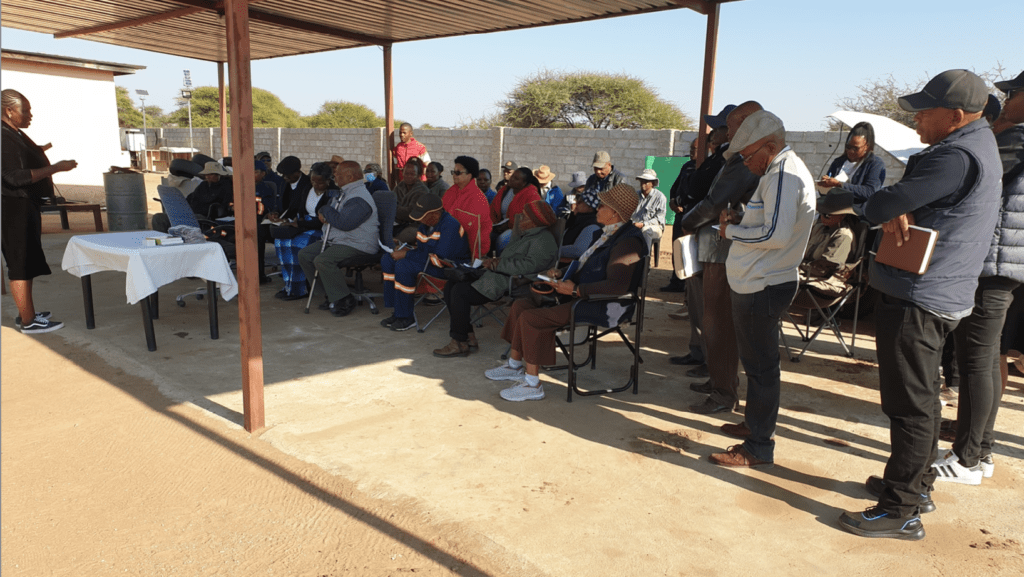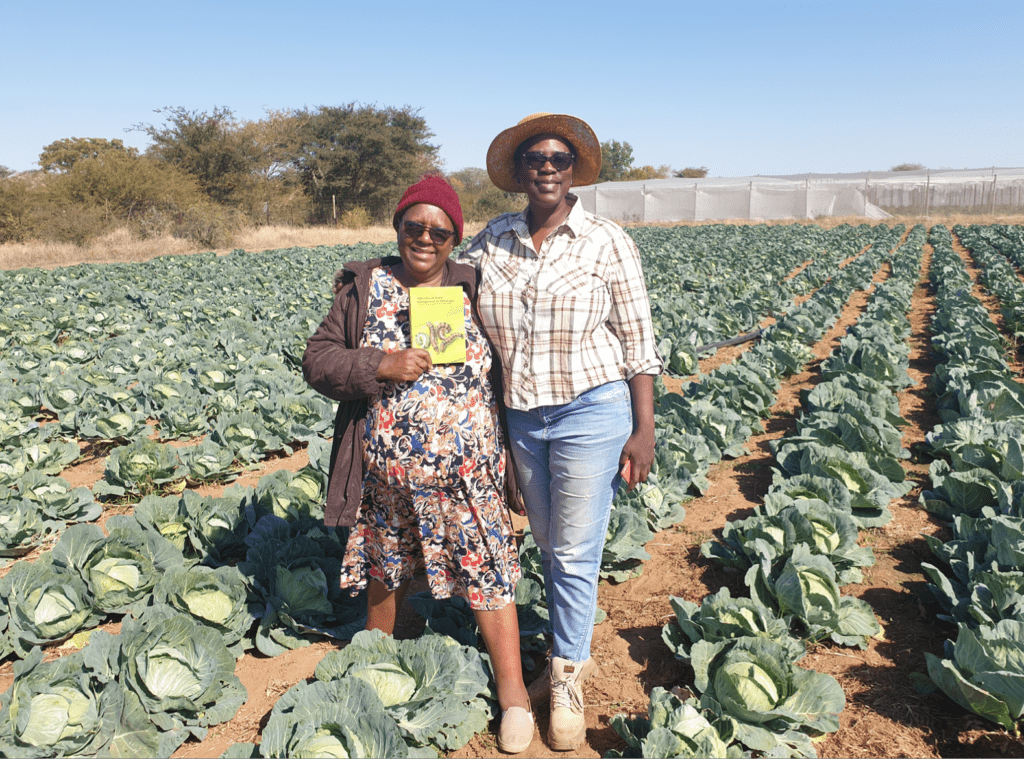

Demonstrating the benefits of IPM to Botswana farmers, and training the next generation of practitioners
September 30, 2024
The Crawford Fund Western Australia Committee and the Crawford Fund South Australia Committee recently supported Integrated Pest Management training in Botswana delivered by Adjunct Associate Professor Graham Hall, from the School of Animal and Veterinary Science, at the University of Adelaide.
This follows the Crawford Fund funding the printing and launch of the book Agricultural Insect Management in Botswana. As co-author of the book, Prof Graham Hall held four workshops throughout the country for at least 90 farmers to showcase the book and encourage them to use more sustainable agricultural practices. He also presented a copy of the book to His Excellency the President of Botswana, Dr Mokweetsi Masisi.

 (Top) Farmers attending field days to learn about IPM, and (bottom) pictured with a copy of Agricultural Insect Management in Botswana, a book printed and launched with support from the Crawford Fund.
(Top) Farmers attending field days to learn about IPM, and (bottom) pictured with a copy of Agricultural Insect Management in Botswana, a book printed and launched with support from the Crawford Fund.
Most recently, the Fund supported Prof Hall to return to Botswana to establish demonstration plots on local farms with collaborating farmers. The demonstration plots allowed for the running of three field days, where over 150 farmers attended and learnt about:
- insect identification, monitoring and management,
- the economic comparison between using synthetic insecticides and biological insecticides for pest control,
- safe handling and use of pesticides.
The demonstrations also presented training case studies via:
- Collection and identification of pest and beneficial invertebrates.
- Field pest surveillance for early detection and identification of pest infestations and biosecurity threats.
- The opportunity to engage farmers in both identification and reporting of pest infestations to IPM Botswana thereby facilitating early intervention, reduced chemical pesticide usage and demonstration of IPM-compatible insecticides.
- The safe handling, use and dilution of chemical pesticides to ensure more efficient use of pesticides.
“During the running of the demonstration sites, safflower budfly was discovered as a new pest of safflower; this was the first time in Africa this fly has been discovered, demonstrating to farmers the value of intensive monitoring of horticultural crops from a biosecurity perspective,” he said.
“The collective impact of the two Crawford Fund projects has meant that farmers in Botswana are trusting of the expertise available from Australian practitioners, and have a heightened awareness of the opportunities available to them from using Integrated Pest Management principles and practices,” said Graham.
The Botswana Government’s Ministry of Agriculture is interested in revamping the apiculture industry and Prof Hall has been asked for advice on where to seek information from Australian beekeepers.
“There are no other training programs currently available for Botswana farmers for bio-pesticides and Integrated Pest Management other than the Crawford Fund. Opportunities exist for Australian companies to invest in the commercial rearing of biological control agents; training in apiculture, broad-scale fruit farming, climate-smart agricultural practices, and many more,” he concluded.




